Animal enrichment programs stimulate social interaction and conversation
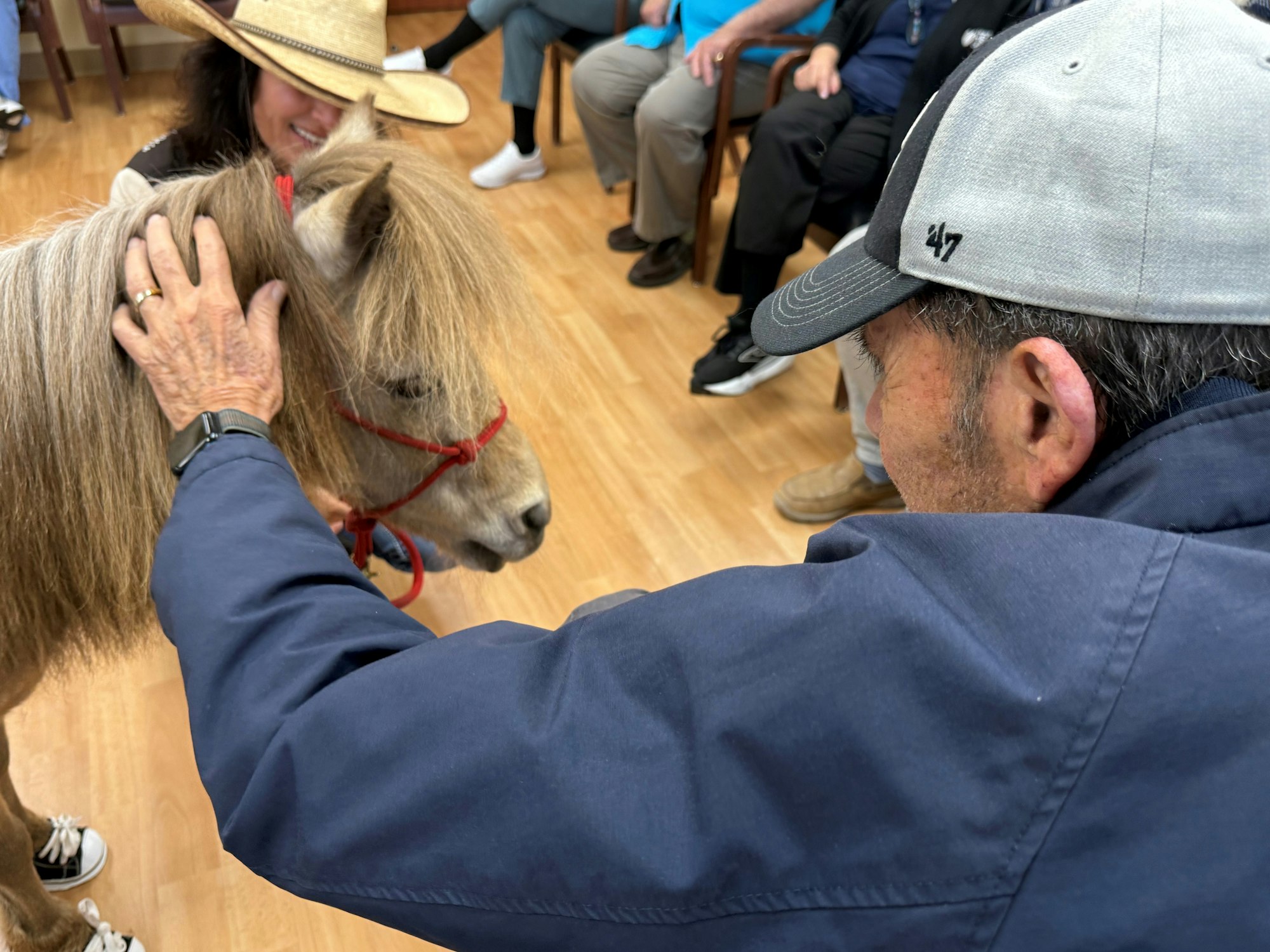
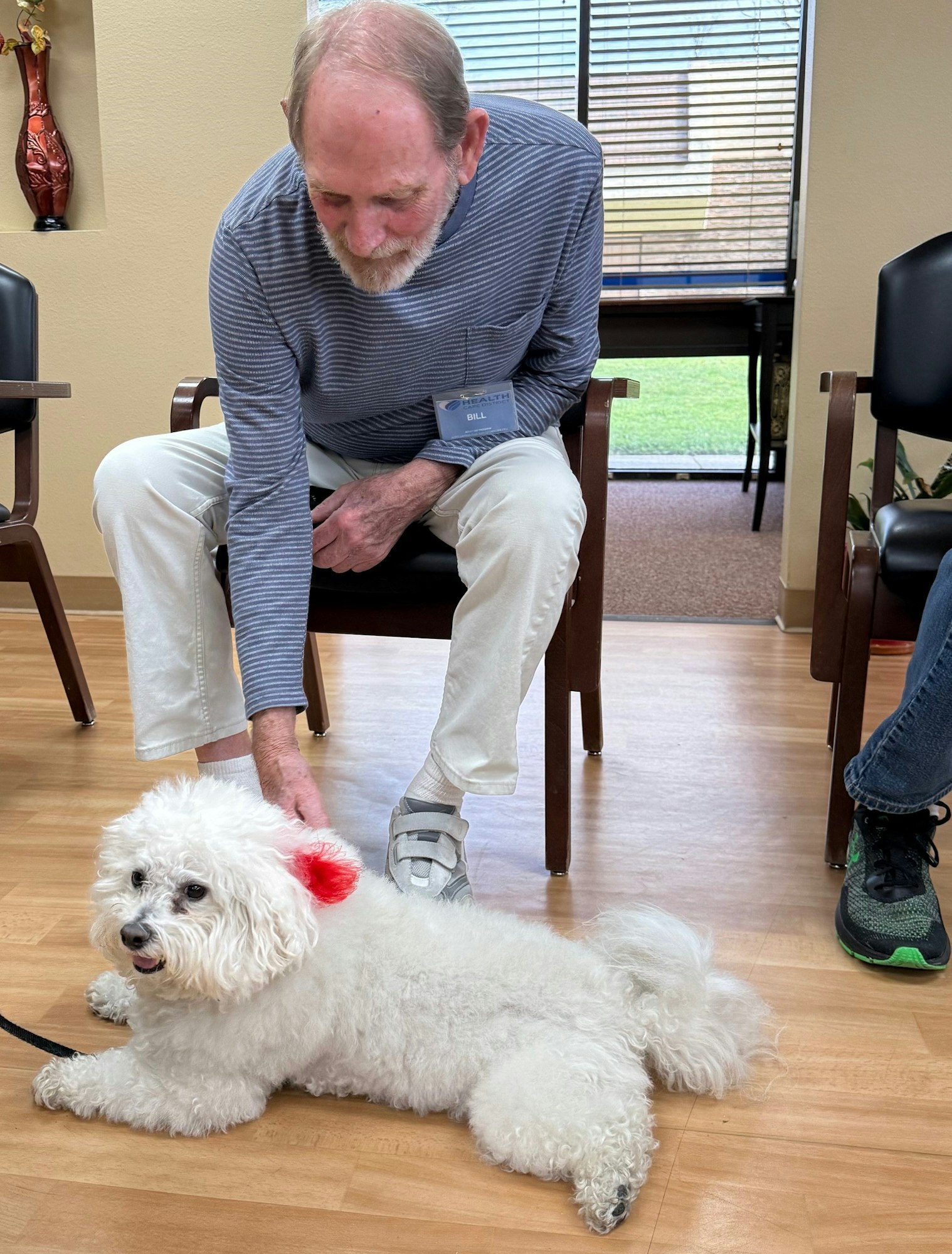
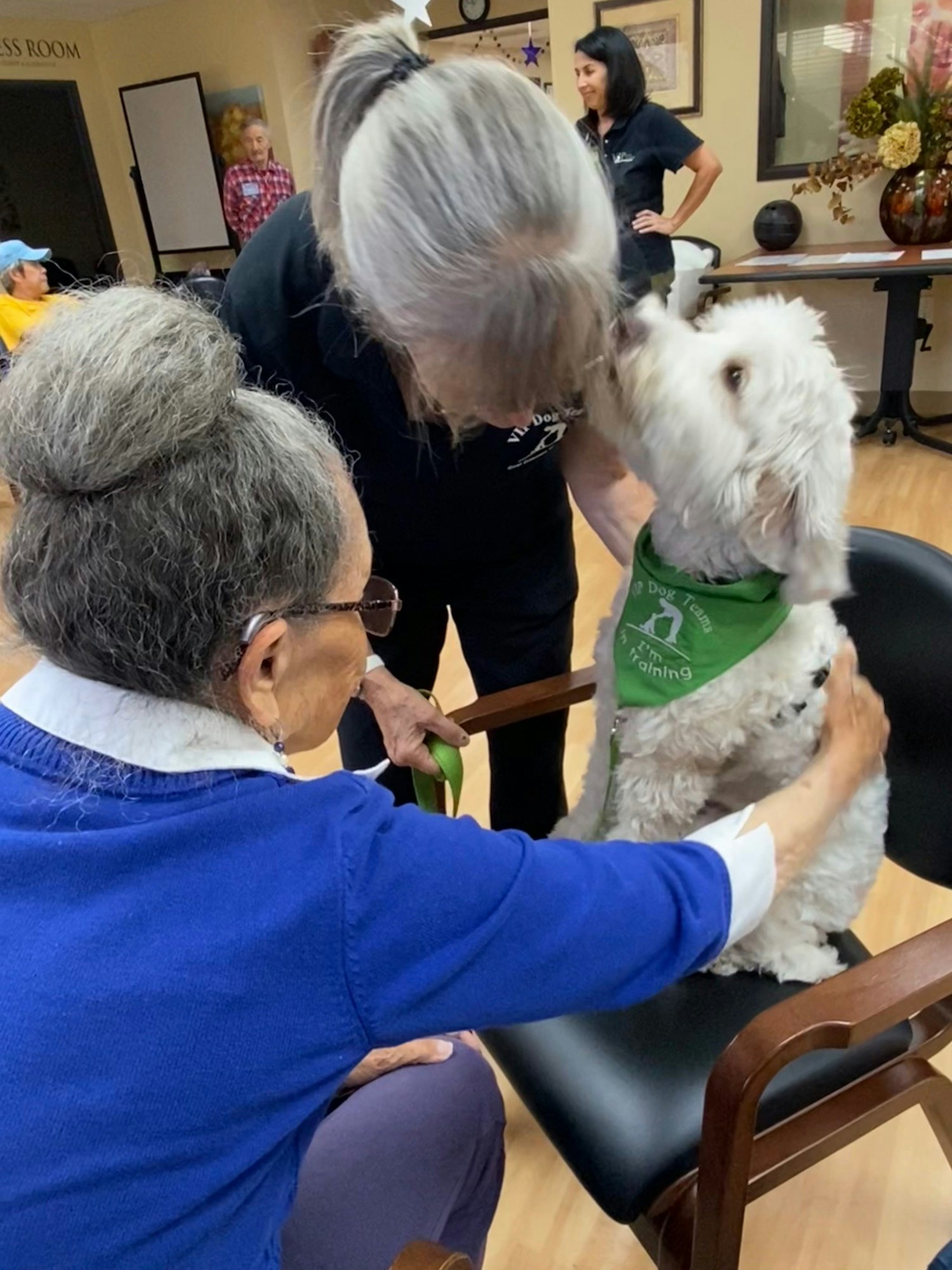
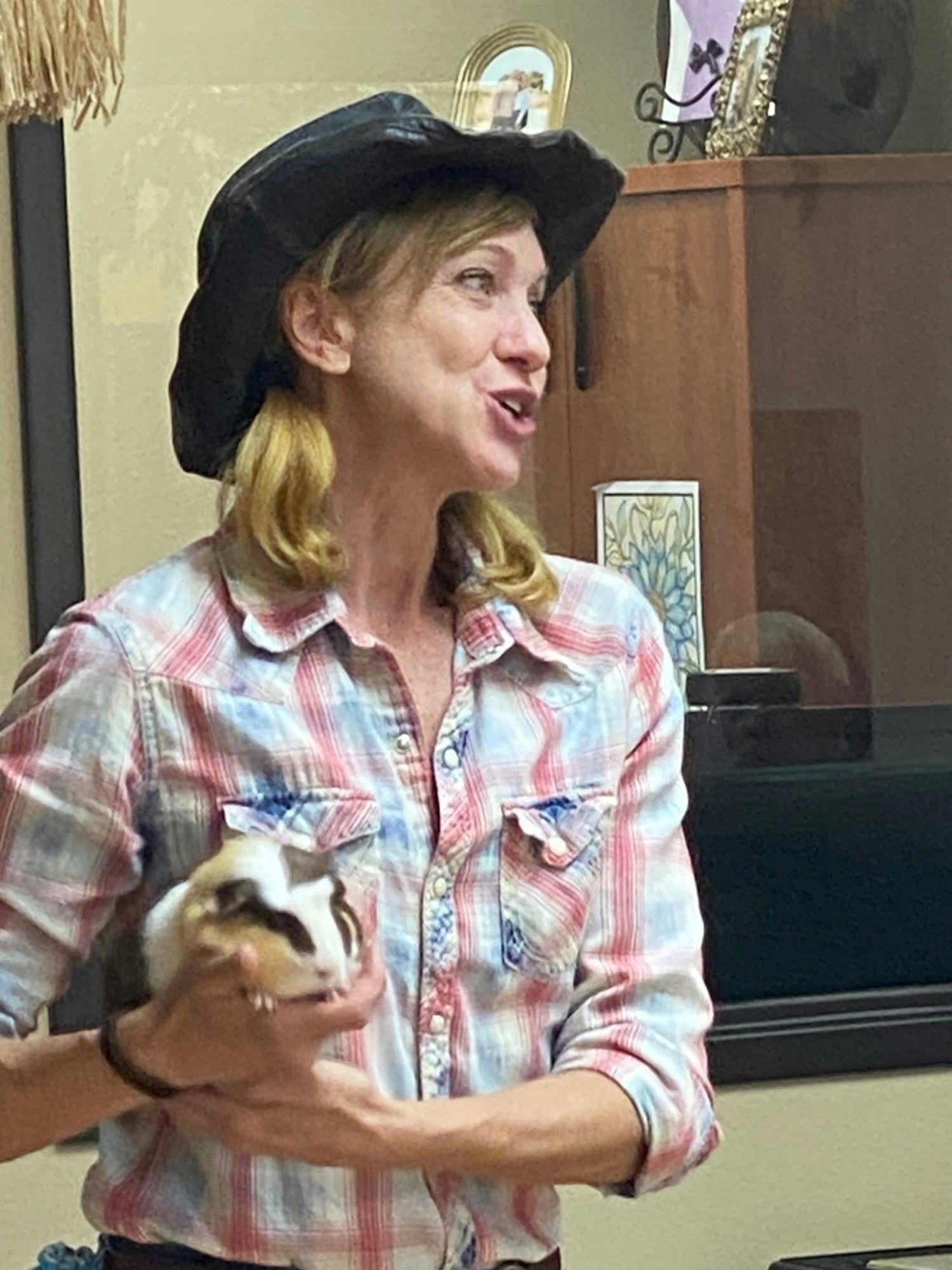
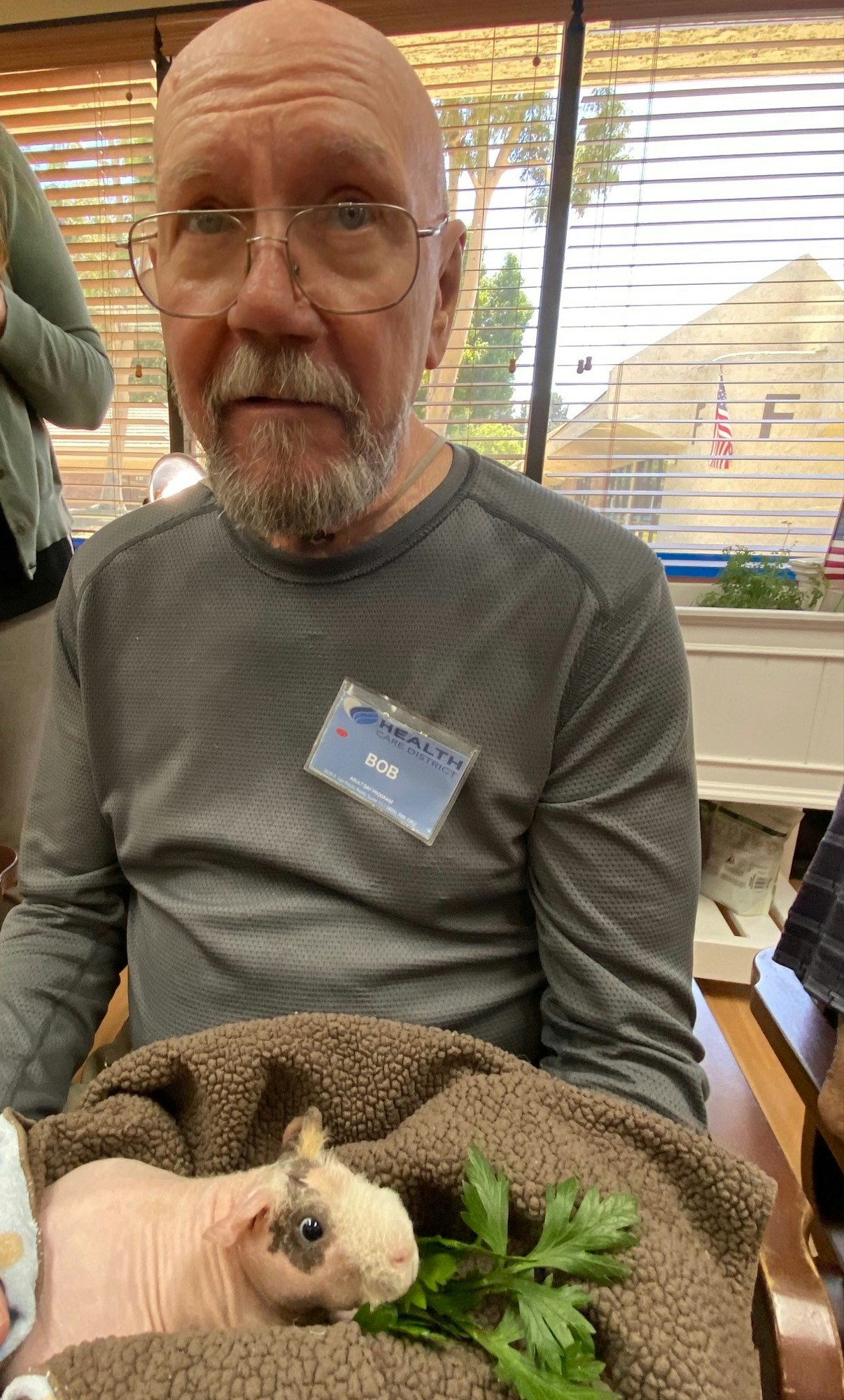
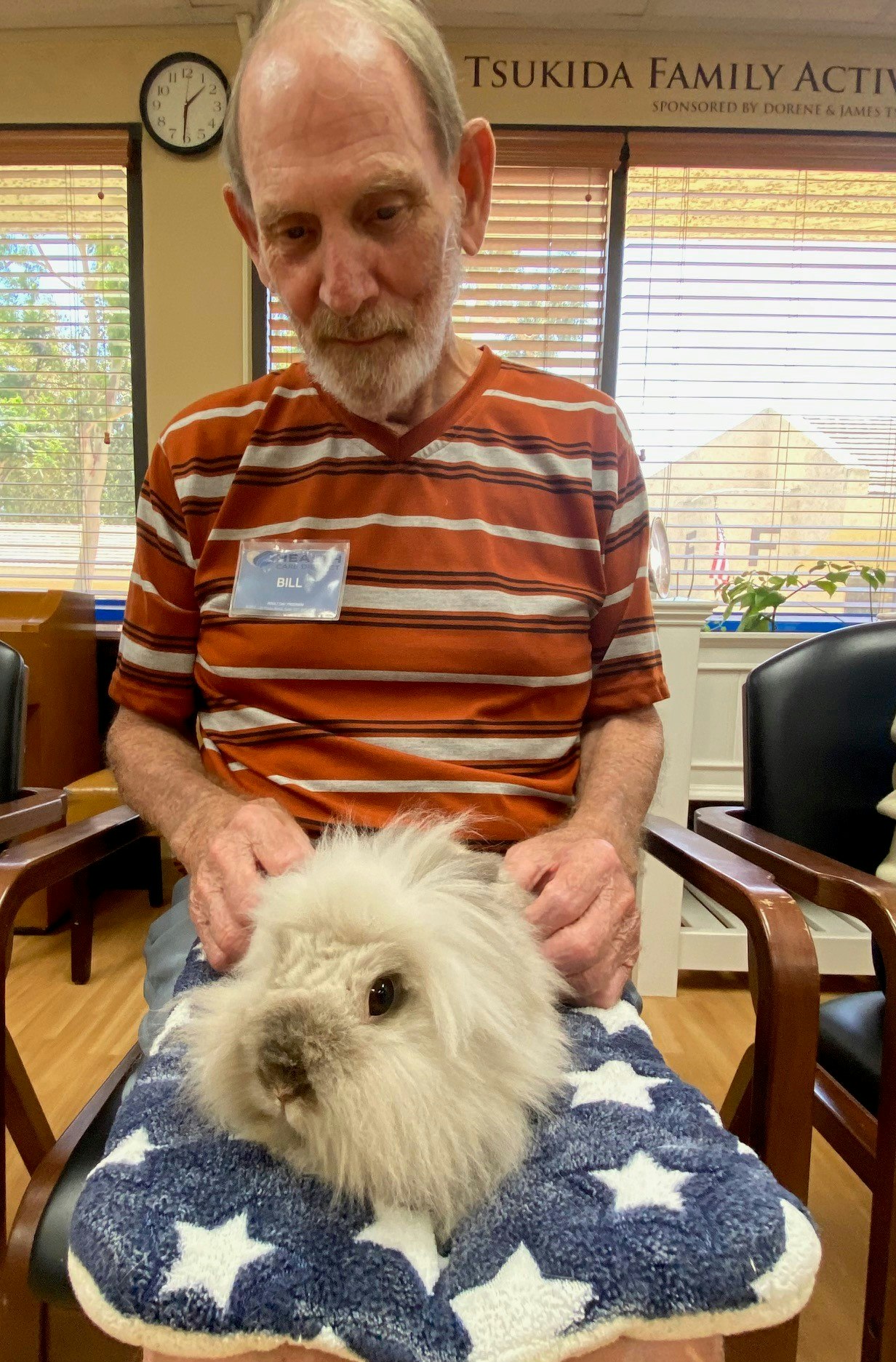
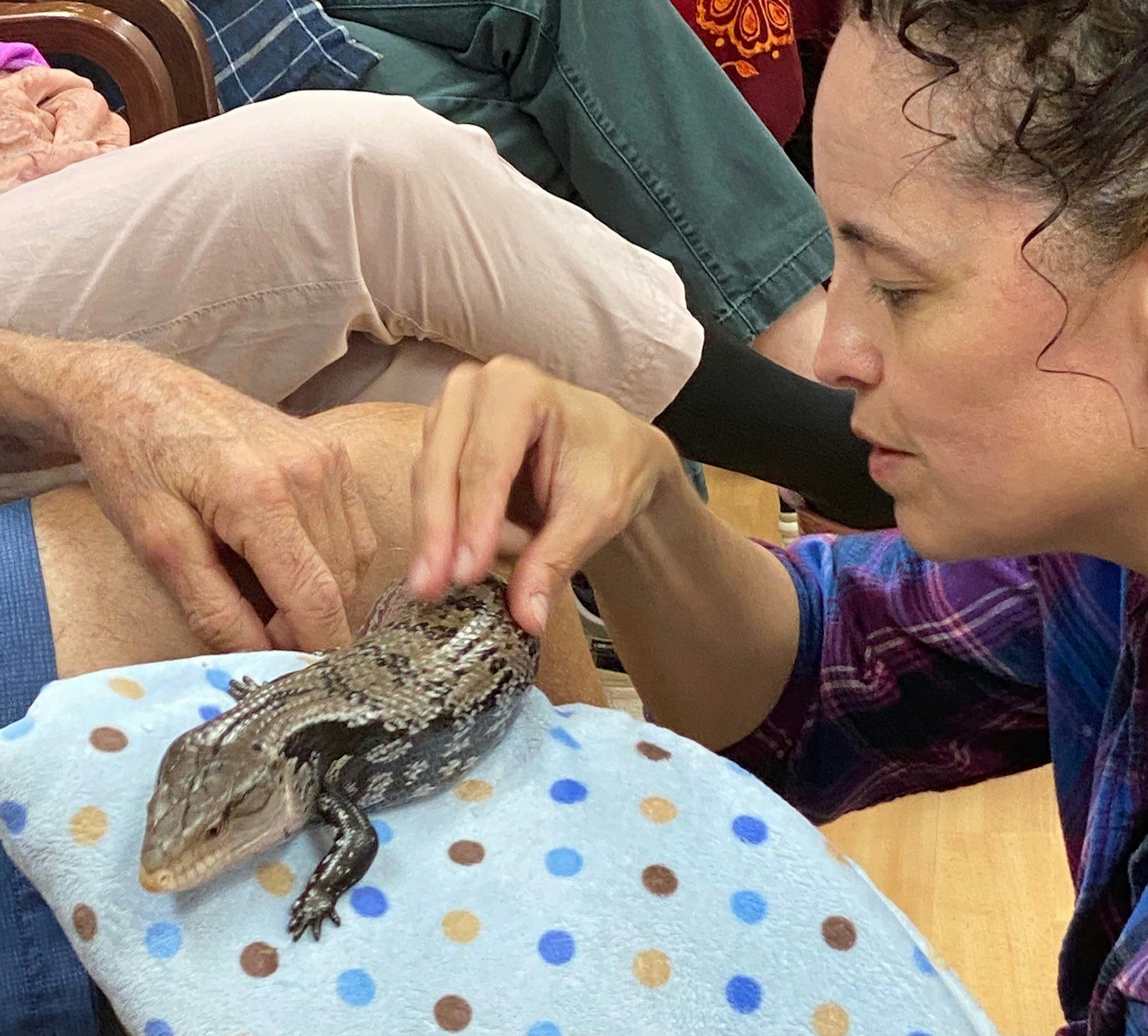
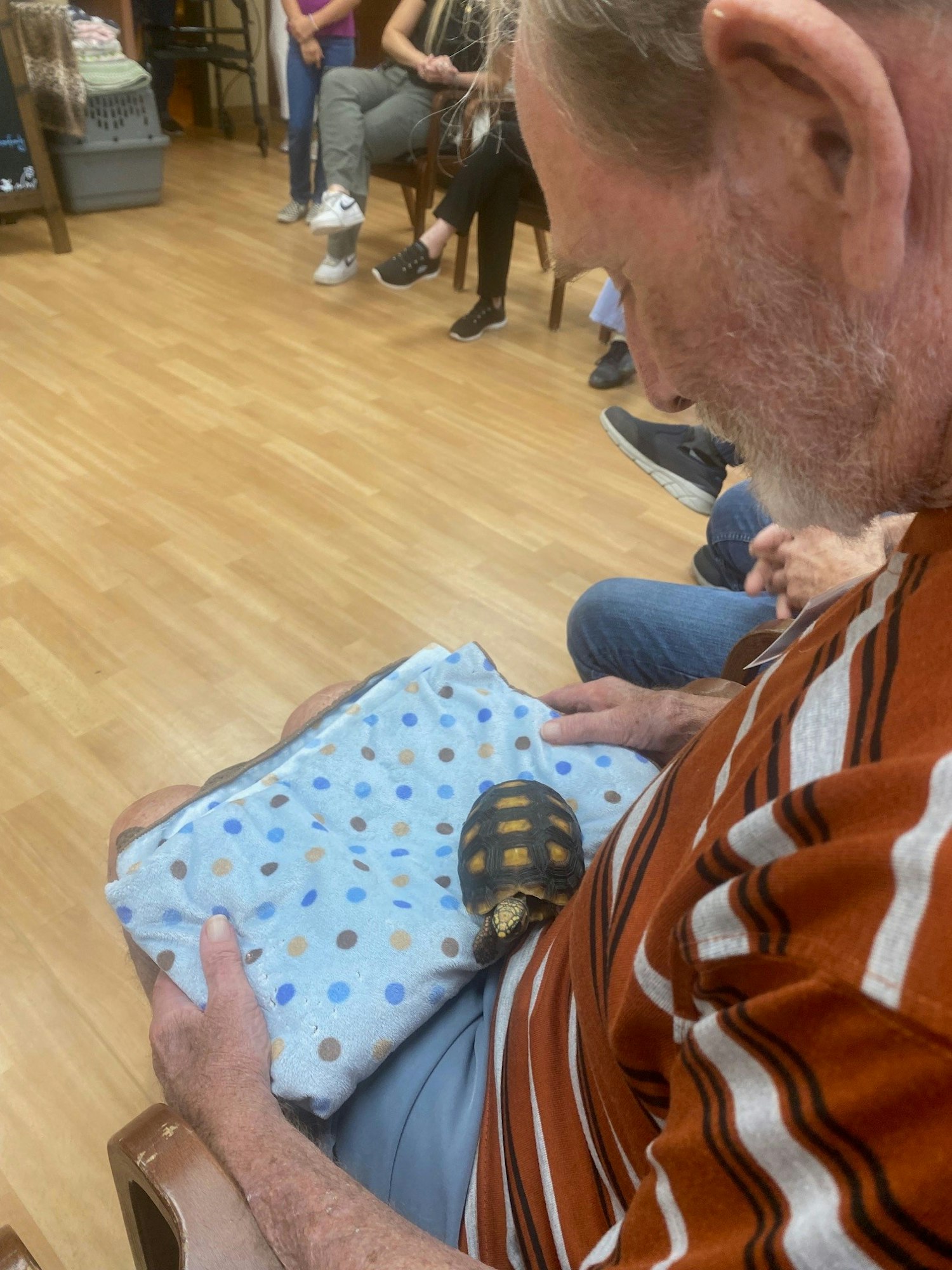
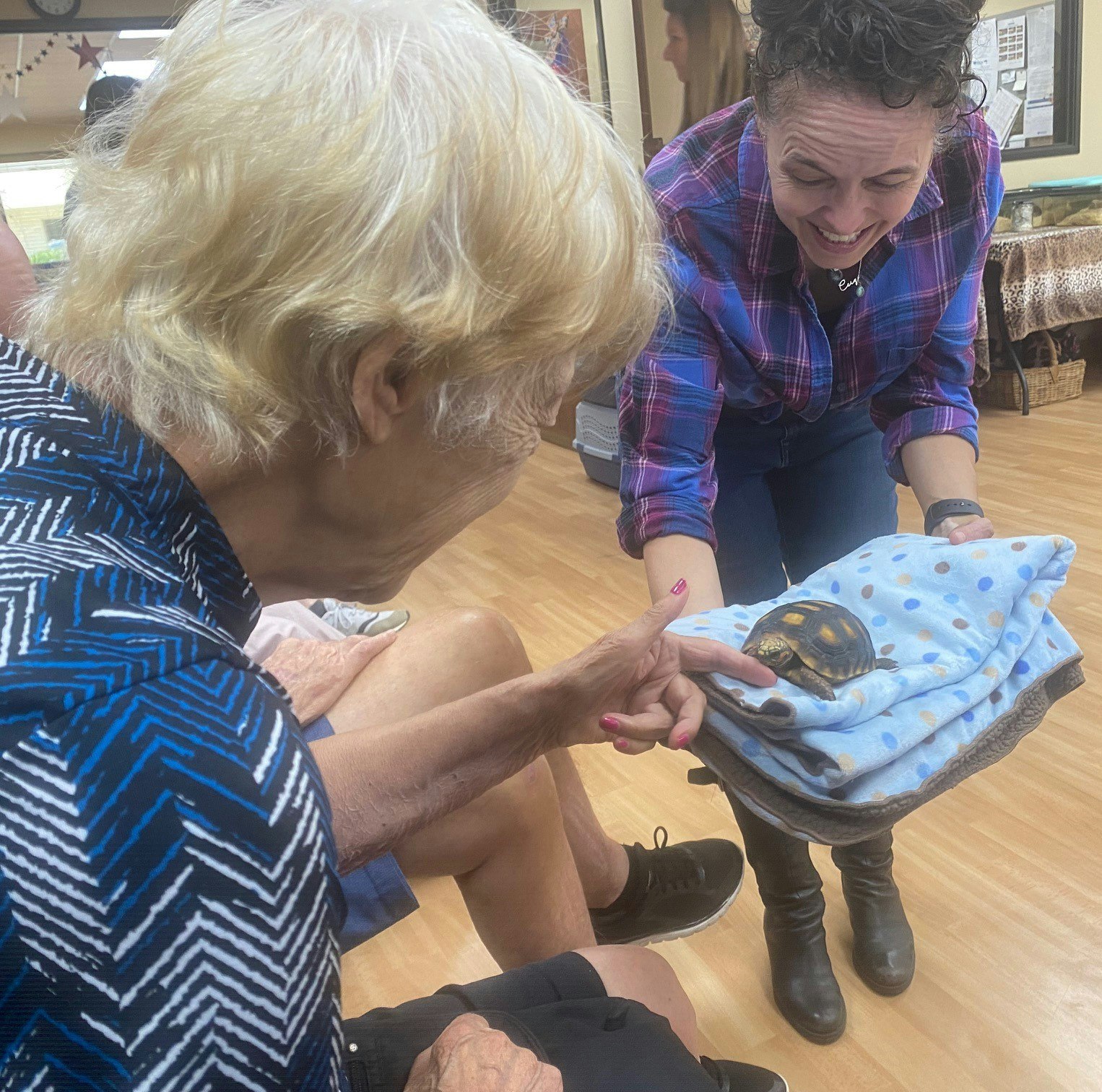
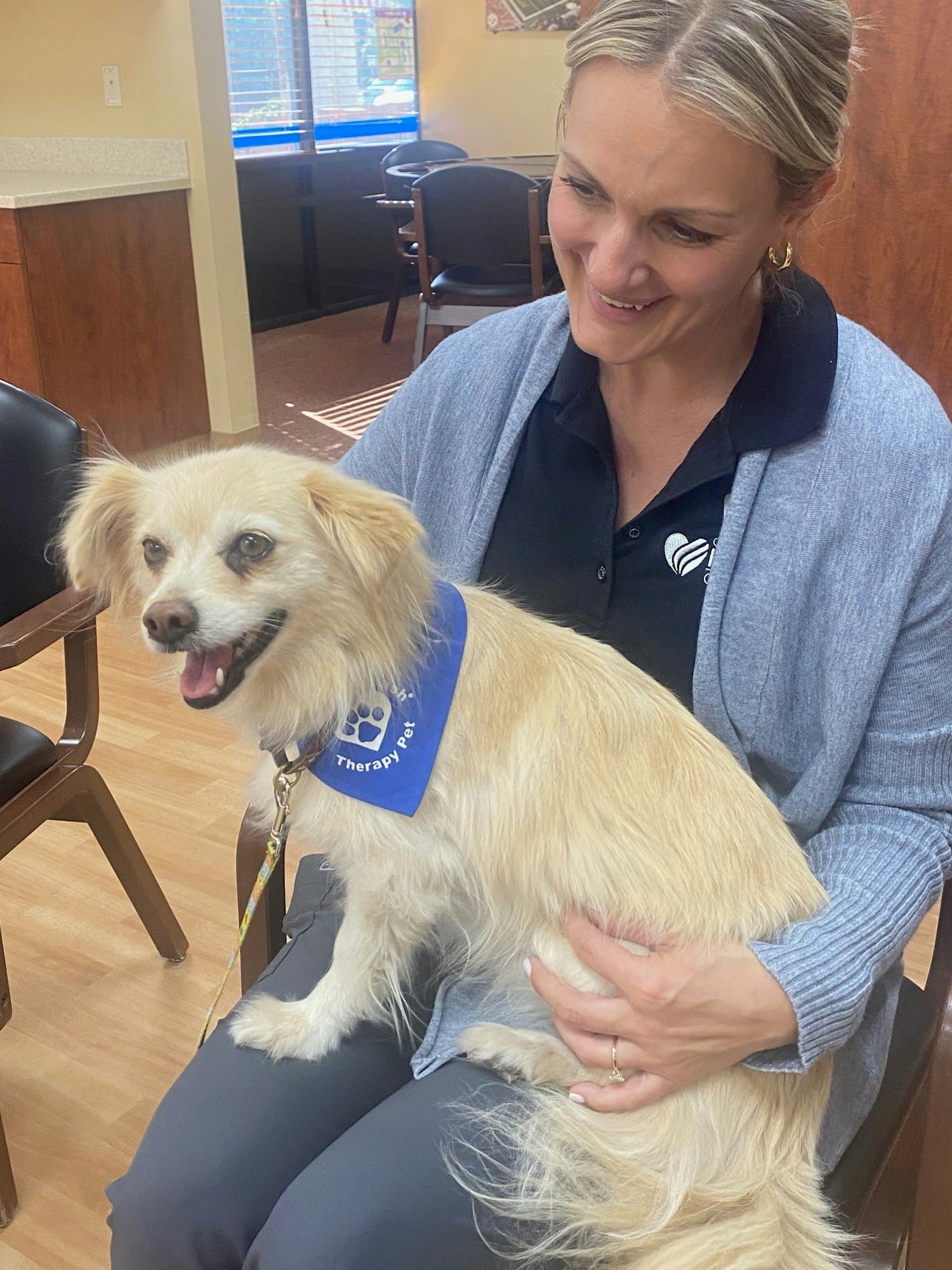
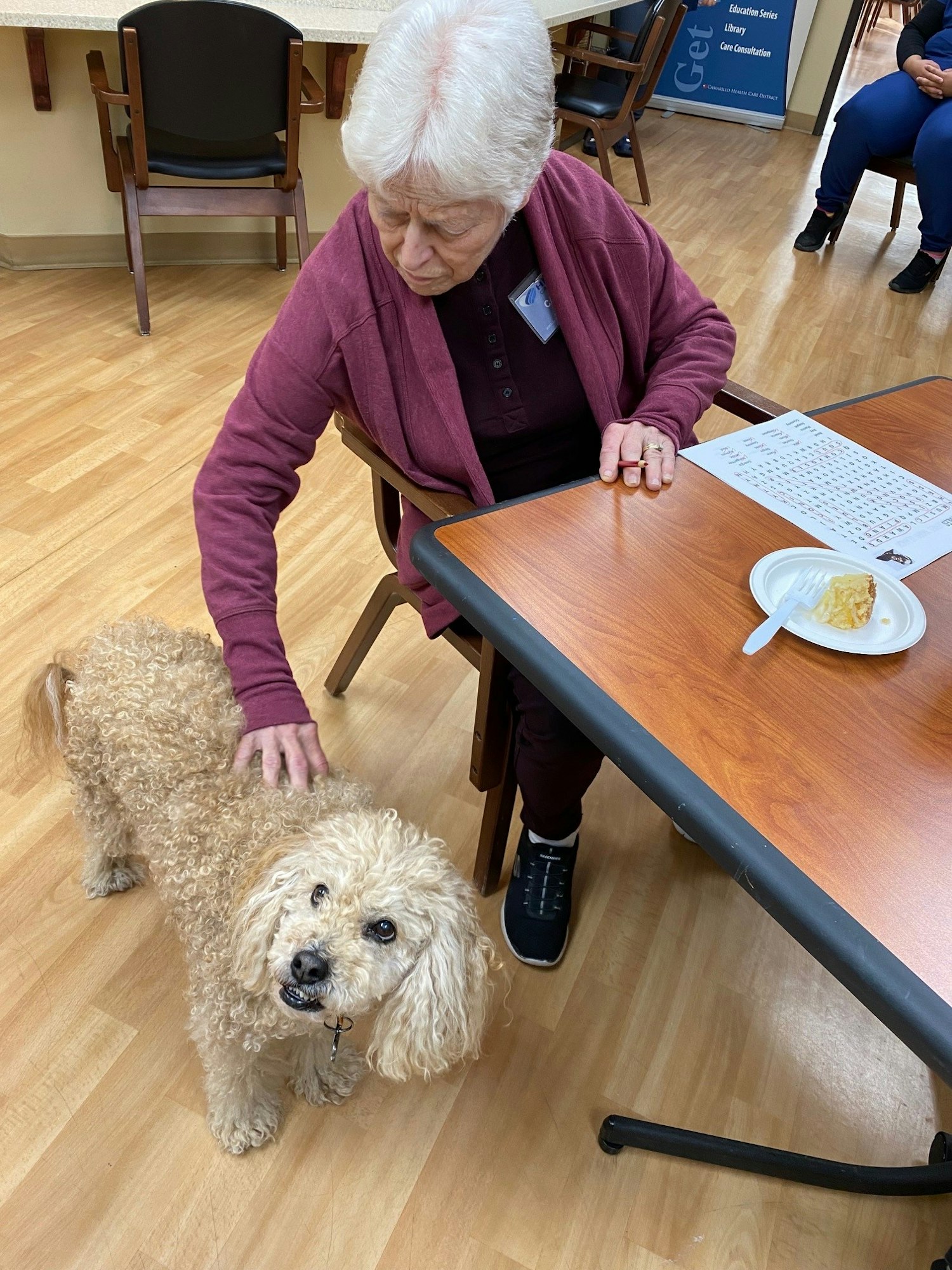
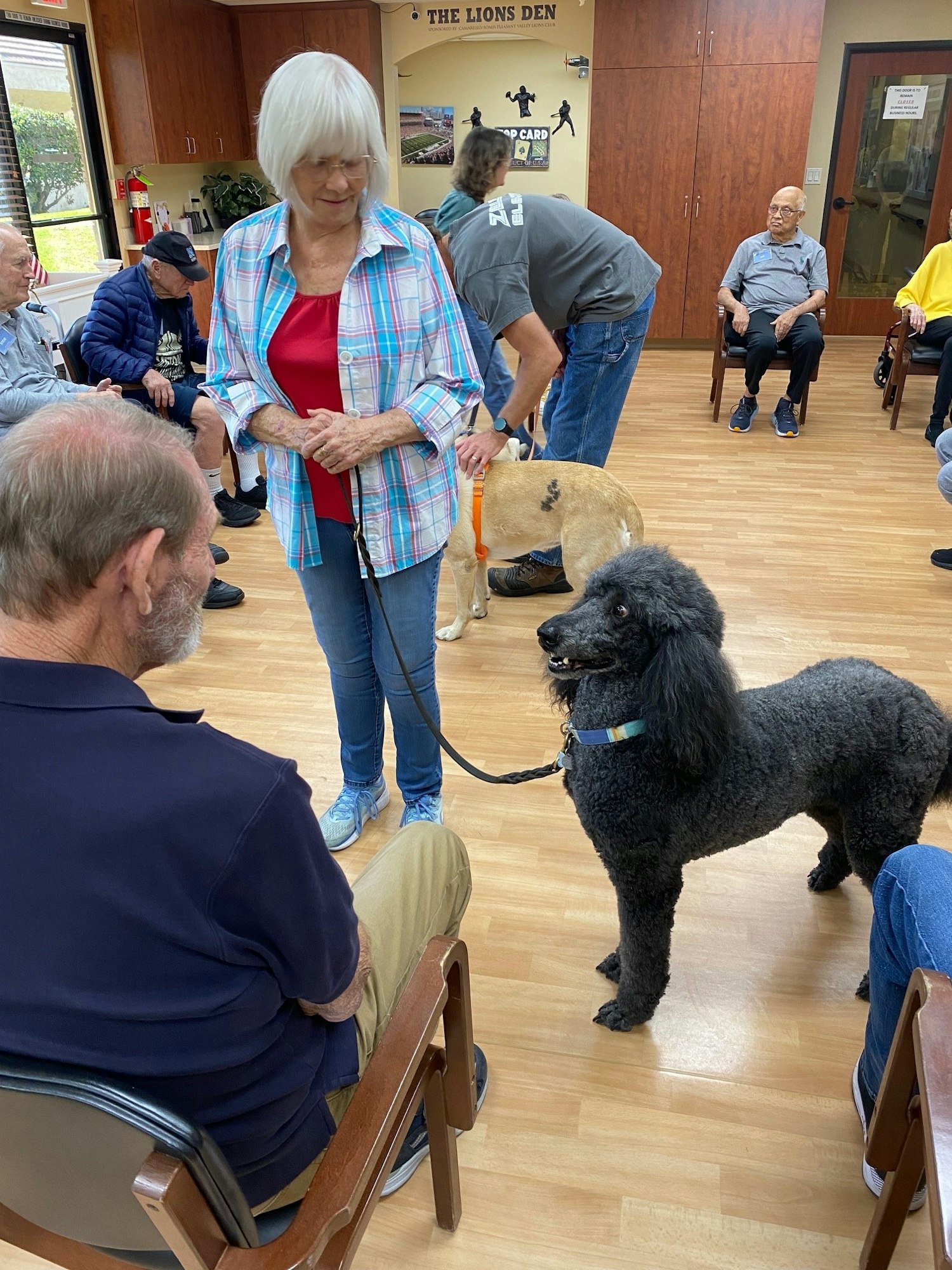
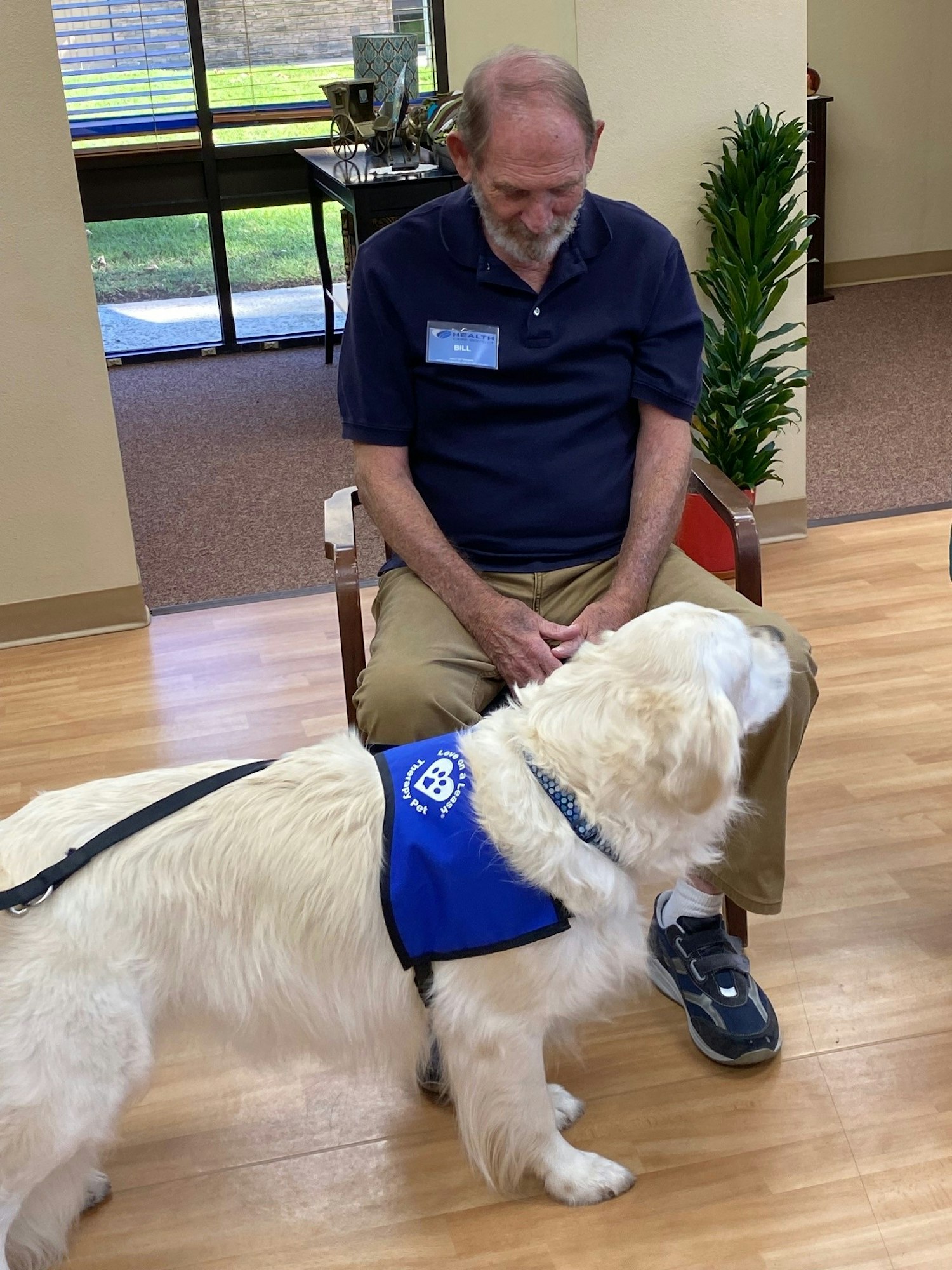
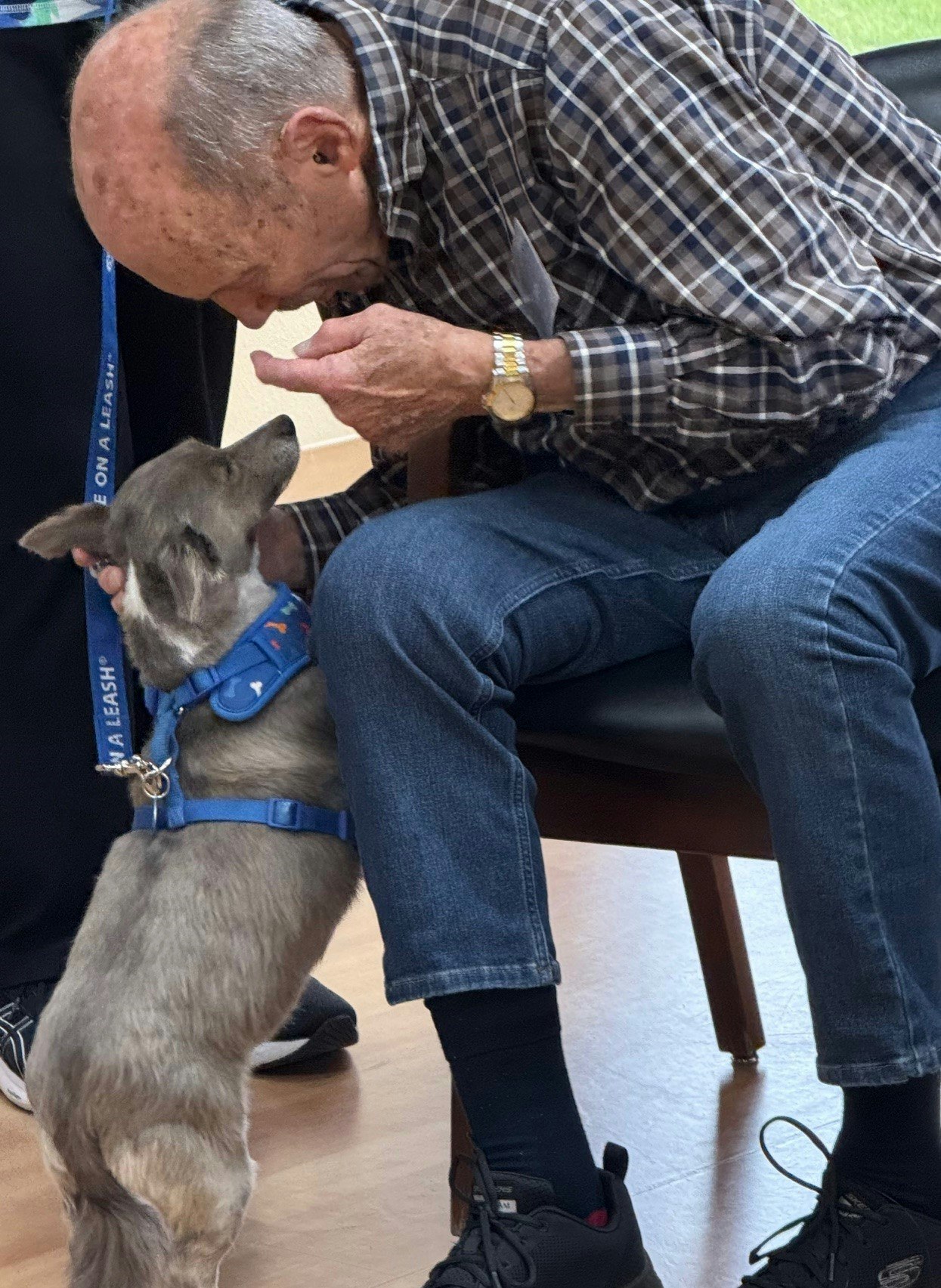

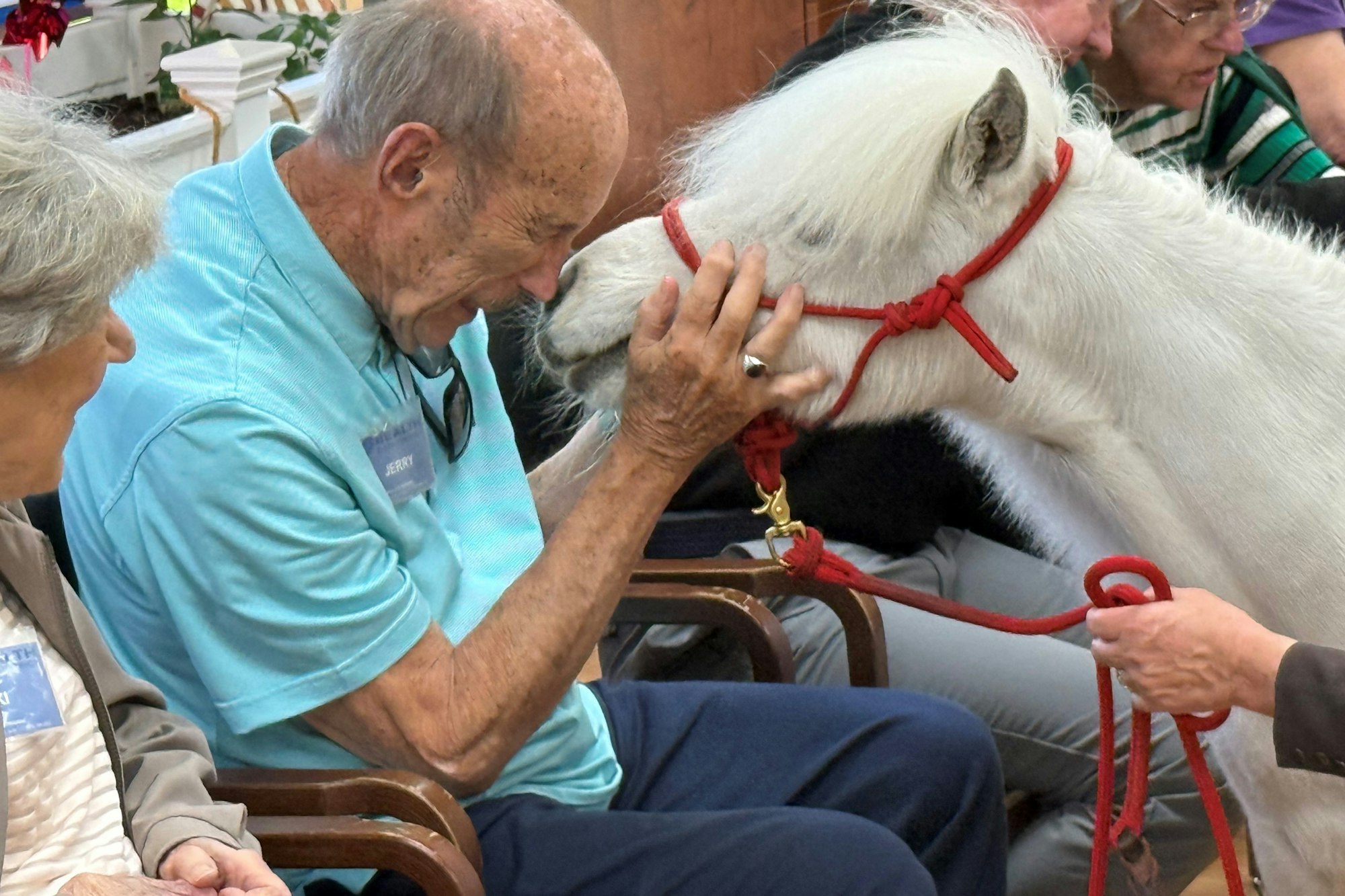
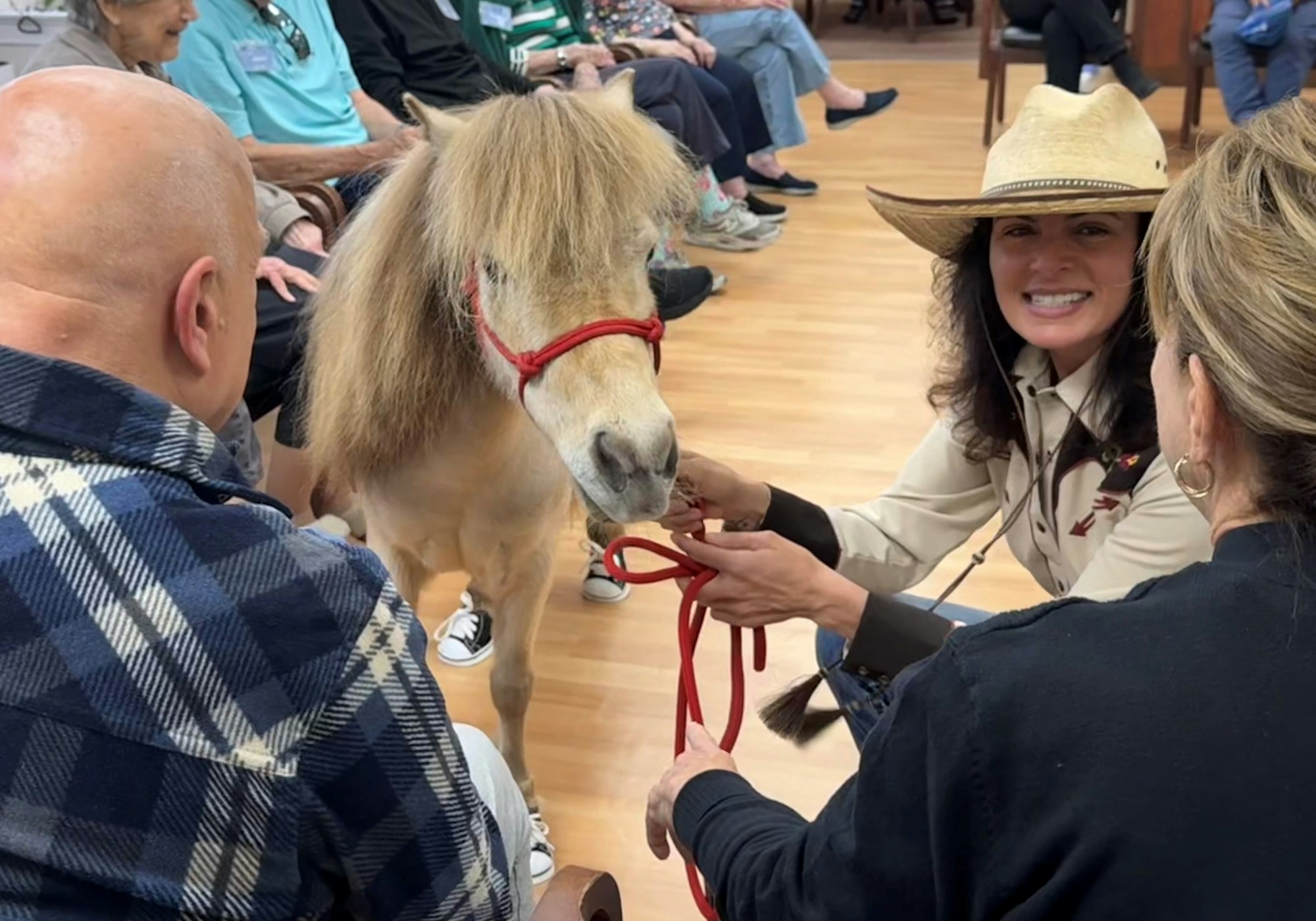

















Animals can speak with their whole bodies. From an energetic wag, to a nudge of a nose, or a flick of an ear, animals can communicate. Are we willing to listen?
Several times a month fluffy tales wag and gazes meet during multiple animal therapy opportunities at the Camarillo Health Care District’s Adult Day Center.
The concept of integrating animals into senior settings, like the Adult Day Center, is rooted in the understanding of animal-assisted therapy’s psychological benefits. Animal-assisted activities can provide special motivation and add an enhanced dimension to life. Studies have shown that engagement with animals supports memory retention, problem solving and skills development. Researchers say interacting with animals can stimulate the release of hormones like oxytocin, known as the “love hormone,” fostering a sense of calm and happiness.
“Animal therapy is a much-beloved activity in our Adult Day Center,” said ADC Director Mary Ann Ratto. “Our animal visits provide an inclusive experience that welcomes individuals who might be non-verbal, have limited mobility, and/or visual or hearing impairments. Engaging the senses with seeing, touching and snuggling fosters a sense of calm and connection among our participants.”
Animal enrichment programs offer a special time for both the animal and the participants, with studies showing particular benefit in older adults. The cognitive engagement involved in observing animal behavior and engaging with them can trigger neurological responses that sharpen mental acuity which is particularly important in cases of cognitive decline. Studies show that for older adults with degenerative conditions, like dementia, these animal interactions can affect the progression of symptoms.
Romeo Roadshow
Miniature horses Romeo and Ziggy make regular visits to the District’s Adult Day Center, spreading much joy. Romeo is affectionate, sweet and caring, while Ziggy is described by their handlers as smart and quick to learn new tricks. Their patience and quiet temperaments have earned them quite the devoted fan club!
The Little Zoo
Featuring a fascinating mix of reptiles and bunnies, this menagerie provides delightful sensory and cognitive stimulation as clients learn about Merigold, a citrus-bearded dragon; Topaz, a blue-tongued skink; Poppy, a lionhead bunny; and Pippin, a red-footed tortoise.
And More!
The Adult Day Center also offers robotic pets, including a cat, a kitten and a dog, for participants to enjoy when live animal visits are not available. “We've observed similar positive effects with these robotic companions, as participants often experience the same sense of comfort and engagement as they do with live animals,” Mary Ann said.
Many people have had emotional connections with pets or animals during their lives and providing animal interactions can help reduce feelings of anxiety and stress, stimulate social interaction and conversations, and provide opportunities for nurturing and play. Pet therapy benefits also include reducing blood pressure, improving cardiovascular health, and releasing endorphins, which produces a calming effect.
The District’s licensed Adult Day Center provides safe, respectful, and compassionate option for adults who benefit from additional care during the day due to health conditions such as Alzheimer’s disease, Parkinson’s disease, stroke, brain injury, decreasing mobility, isolation or loneliness.
This Center is the only one of its kind in the Camarillo area and receives clients from throughout Ventura County. In 2014, the Center was expanded and redesigned with a person-centered focus and to reflect a home-like environment, with an open-concept living room, kitchen and dining area, game rooms, indoor gardening beds, gathering space with a piano for entertaining, and a special quiet space. In 2015, it received “Innovative Program of the Year” throughout the state of California from the California Special Districts Association.
The Center is a social model that focuses on providing socialization, mental and physical activities that can be enjoyable for everyone. “The Center touches so many lives on a daily basis and we see that in action each time families refer other families to the Center,” Adult Day Program Director Mary Ann Ratto said.
